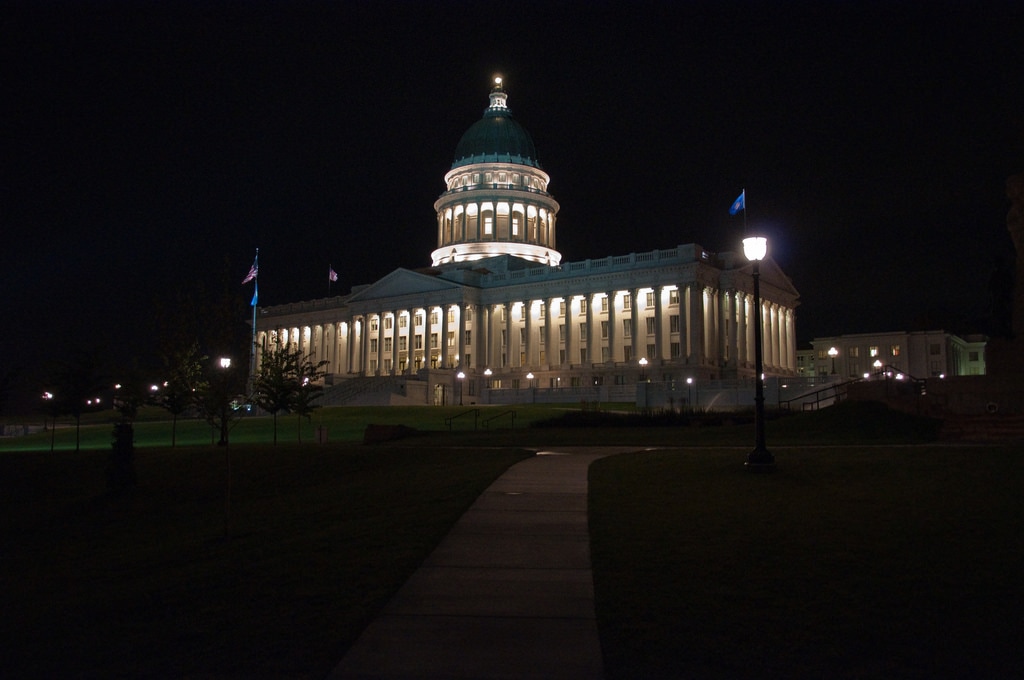| When I asked Utah Senate President Wayne Niederhauser an obvious question near the end of the legislative session — “Won’t it be harder to pass a tax reform bill next year because it is an election year?” — he nodded without hesitation. And when I added, “And won’t it be even harder if an initiative process is underway to raise taxes for schools?” he said, “Maybe that’s the kind of pressure we need.” |
| | If the 2017 legislative session was relatively quiet — the most raucous hearing focused on a nonbinding resolution asking the president to undo the Bears Ears National Monument, and the most important pieces of legislation were liquor bills that generated relatively little controversy — 2018 could be a doozy. Lawmakers failed to agree on a tax reform bill this year. Next year, they may face the pressure of simultaneously appearing tough on taxes and supportive of a lot more money for education, which could prove taxing, pun intended. The “Our Schools Now” initiative aims to raise about $750 million more per year for schools by hiking income taxes 17.5 percent (or from the current flat rate of 5 percent to 5 7/8 percent). Legislative leaders hate raising the income tax, which they see as a tax on prosperity. But they will be hard pressed to head off the initiative by finding that kind of money elsewhere. And they will be debating how to do this knowing their own names and a tax-hike proposal for schools may be on the same ballot in November. Even this year, the faint echoes of the approaching initiative changed the dialog on Capitol Hill. At the start of the session, some lawmakers told me they weren’t worried about it because they felt voters would reject the initiative once they understood the size of the tax increase. Many of them still feel this way, but by the end of the session, leaders were eager to tout how much they had done for schools in 2017. The funding plan (deadlines force me write this before the end of the session, so final totals may vary) was to add $240 million to public education and increase the weighted pupil unit, the basic funding formula for schools, by 4 percent. That was enough to mute even the loyal opposition. Senate Minority Assistant Whip Luz Escamilla, D-Salt Lake City, told reporters on Wednesday the Democrats had wanted a 4.5 percent increase in the WPU, but she wasn’t going to quibble. Make no mistake, this kind of increase wouldn’t have happened without the threat of a petition drive, but the effort wasn’t enough to make “Our Schools Now,” led by prominent Utahns such as Jazz owner Gail Miller, rethink its efforts. $240 million is a far cry from $750 million. Lawmakers spent a lot of time this year talking about restoring the full sales tax rate on groceries while lowering the overall rate, or removing certain tax exemptions. That all fell apart in negotiations. One item likely to pass would change the formula for calculating the gas tax, which certainly would raise the price of gas as time goes by. They never tied any of these efforts to education funding specifically, but the underlying premise was that tax reform eventually could generate more revenue for schools without touching the income tax. But real reforms are tough to negotiate under any circumstances, let alone under the threat of a petition drive that could alter taxes in ways lawmakers don’t like. Gov. Gary Herbert, an opponent of the petition drive, struck a gracious tone near the end of the session. “They believe passionately in what they’re doing and they should move ahead,” he said of the organizers. “I think that’s helping motivate us all to take a look at what are the options out there to enhance revenue for education.” But, he added, “We want to make sure that we don’t kill the goose that’s laying the golden eggs. That is the best, most diverse, healthy economy in America today.” The task of saving that goose while not getting politically cooked will make the 2018 legislative session interesting, indeed. |


 RSS Feed
RSS Feed

